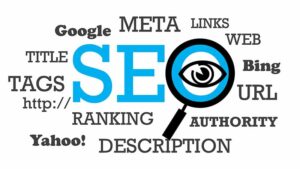SEO
Common SEO Myths Busted
Most myths are harmless. But the same can’t be said for most SEO myths. So, we need to bust these common myths and get you focused on tactics and strategies that’ll move the needle.
The first myth we need to debunk is that SEO is dead.
Journalists like to say that many things are dead. These kinds of headlines often lead to opinion editorials that end up being nothing more than clickbait.
SEO is alive and well. How do we know that?
You’ll find out in the video.
The second myth is that Google only ranks “fresh” content.
Does Google rank fresh content? Of course. But Google also ranks content that hasn’t been updated in years.
The thing is: freshness is a query-dependent ranking factor. That means fresh content matters for some search queries, but not so much for others.
Learn how to tell when a query relies on freshness in the video.
The third myth is that duplicate content will get you penalized.
Duplicate content is exact or near-duplicate content that appears on the web in more than one place. But there is no such thing as a duplicate content penalty.
The thing is: Google and its representatives have said on numerous occasions that Google doesn’t have a duplicate content penalty.
But that doesn’t mean duplicate content is good for your site.
Why? Find out in the video (plus, how to find and fix this issue.)
The fourth myth is that SEO is a “set it and forget it” job.
While SEO can lead to free, passive, and consistent traffic that doesn’t fade over time, it doesn’t mean that you can simply rank your pages and call it a day.
SEO is like going to the gym. It’s ok to miss a workout here and there, but you have to go consistently in order to get and maintain those results.
If you choose to ignore all efforts after you’re ranking high, you’ll likely lose backlinks while your competitors are building them. Your content will get stale for queries that rely on a freshness factor.
The fifth myth is that social shares help you rank higher in Google.
It’s reasonable to believe that the more your content gets shared on sites like Facebook, Twitter, and Pinterest, the higher those pages will rank. But Google’s John Mueller has said that social signals don’t directly impact rankings.
Learn why this myth persists in the video.
The sixth myth is that Pay Per Click Advertising won’t help you rank higher in search.
Paying for ads doesn’t directly influence rankings. Google won’t rank you higher in organic search just because you’re paying them.
But PPC can indirectly help your pages get more backlinks because of increased exposure, just like social shares.
How? Watch the video to find out.
And the final myth we’re busting is that SEO is always about ranking #1.
We all want top Google rankings. But there’s a point where boosting your position for a single keyword may not be worth the required time and effort.
Why? You’ll find out in the video.
Now, these aren’t the only SEO myths that are out there. There are more to cover. But when you understand why these myths are not to be believed, you’ll be better off with your SEO strategies.
[optin-monster slug=”em8z7q6hga9elmy1dbgb”]





